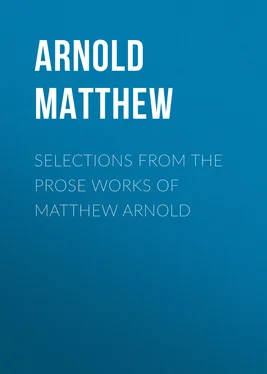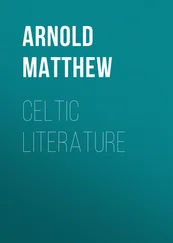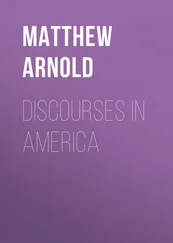Matthew Arnold - Selections from the Prose Works of Matthew Arnold
Здесь есть возможность читать онлайн «Matthew Arnold - Selections from the Prose Works of Matthew Arnold» — ознакомительный отрывок электронной книги совершенно бесплатно, а после прочтения отрывка купить полную версию. В некоторых случаях можно слушать аудио, скачать через торрент в формате fb2 и присутствует краткое содержание. Жанр: foreign_prose, literature_19, foreign_antique, на английском языке. Описание произведения, (предисловие) а так же отзывы посетителей доступны на портале библиотеки ЛибКат.
- Название:Selections from the Prose Works of Matthew Arnold
- Автор:
- Жанр:
- Год:неизвестен
- ISBN:нет данных
- Рейтинг книги:5 / 5. Голосов: 1
-
Избранное:Добавить в избранное
- Отзывы:
-
Ваша оценка:
- 100
- 1
- 2
- 3
- 4
- 5
Selections from the Prose Works of Matthew Arnold: краткое содержание, описание и аннотация
Предлагаем к чтению аннотацию, описание, краткое содержание или предисловие (зависит от того, что написал сам автор книги «Selections from the Prose Works of Matthew Arnold»). Если вы не нашли необходимую информацию о книге — напишите в комментариях, мы постараемся отыскать её.
Selections from the Prose Works of Matthew Arnold — читать онлайн ознакомительный отрывок
Ниже представлен текст книги, разбитый по страницам. Система сохранения места последней прочитанной страницы, позволяет с удобством читать онлайн бесплатно книгу «Selections from the Prose Works of Matthew Arnold», без необходимости каждый раз заново искать на чём Вы остановились. Поставьте закладку, и сможете в любой момент перейти на страницу, на которой закончили чтение.
Интервал:
Закладка:
Still, in full measure, the sense of creative activity belongs only to genuine creation; in literature we must never forget that. But what true man of letters ever can forget it? It is no such common matter for a gifted nature to come into possession of a current of true and living ideas, and to produce amidst the inspiration of them, that we are likely to underrate it. The epochs of Æschylus and Shakespeare make us feel their preëminence. In an epoch like those is, no doubt, the true life of literature; there is the promised land, towards which criticism can only beckon. That promised land it will not be ours to enter, and we shall die in the wilderness: but to have desired to enter it, to have saluted it from afar, is already, perhaps, the best distinction among contemporaries; it will certainly be the best title to esteem with posterity.
THE STUDY OF POETRY 63 63 Published in 1880 as the General Introduction to The English Poets , edited by T.H. Ward. Reprinted in Essays in Criticism , Second Series, Macmillan & Co., 1888.
"The future of poetry is immense, because in poetry, where it is worthy of its high destinies, our race, as time goes on, will find an ever surer and surer stay. There is not a creed which is not shaken, not an accredited dogma which is not shown to be questionable, not a received tradition which does not threaten to dissolve. Our religion has materialized itself in the fact, in the supposed fact; it has attached its emotion to the fact, and how the fact is failing it. But for poetry the idea is everything; the rest is a world of illusion, of divine illusion. Poetry attaches its emotion to the idea; the idea is the fact. The strongest part of our religion today is its unconscious poetry." 64 64 This quotation is taken, slightly condensed, from the closing paragraph of a short introduction contributed by Arnold to The Hundred Greatest Men , Sampson, Low & Co., London, 1885.
Let me be permitted to quote these words of my own, as uttering the thought which should, in my opinion, go with us and govern us in all our study of poetry. In the present work it is the course of one great contributory stream to the world-river of poetry that we are invited to follow. We are here invited to trace the stream of English poetry. But whether we set ourselves, as here, to follow only one of the several streams that make the mighty river of poetry, or whether we seek to know them all, our governing thought should be the same. We should conceive of poetry worthily, and more highly than it has been the custom to conceive of it. We should conceive of it as capable of higher uses, and called to higher destinies than those which in general men have assigned to it hitherto. More and more mankind will discover that we have to turn to poetry to interpret life for us, to console us, to sustain us. Without poetry, our science will appear incomplete; and most of what now passes with us for religion and philosophy will be replaced by poetry. Science, I say, will appear incomplete without it. For finely and truly does Wordsworth call poetry "the impassioned expression which is in a countenance of all science" 65 65 From the Preface to the second edition of the Lyrical Ballads , 1800.
and what is a countenance without its expression? Again, Wordsworth finely and truly calls poetry "the breath and finer spirit of all knowledge": 66 66 From the Preface to the second edition of the Lyrical Ballads , 1800.
our religion, parading evidences such as those on which the popular mind relies now; our philosophy, pluming itself on its reasonings about causation and finite and infinite being; what are they but the shadows and dreams and false shows of knowledge? The day will come when we shall wonder at ourselves for having trusted to them, for having taken them seriously; and the more we perceive their hollowness, the more we shall prize "the breath and finer spirit of knowledge" offered to us by poetry.
But if we conceive thus highly of the destinies of poetry, we must also set our standard for poetry high, since poetry, to be capable of fulfilling such high destinies, must be poetry of a high order of excellence. We must accustom ourselves to a high standard and to a strict judgment. Sainte-Beuve relates that Napoleon one day said, when somebody was spoken of in his presence as a charlatan: "Charlatan as much as you please; but where is there not charlatanism?"—"Yes," answers Sainte-Beuve, 67 67 ~Charles Augustin Sainte-Beuve~ (1804-69), French critic, was looked upon by Arnold as in certain respects his master in the art of criticism.
"in politics, in the art of governing mankind, that is perhaps true. But in the order of thought, in art, the glory, the eternal honor is that charlatanism shall find no entrance; herein lies the inviolableness of that noble portion of man's being." It is admirably said, and let us hold fast to it. In poetry, which is thought and art in one, it is the glory, the eternal honor, that charlatanism shall find no entrance; that this noble sphere be kept inviolate and inviolable. Charlatanism is for confusing or obliterating the distinctions between excellent and inferior, sound and unsound or only half-sound, true and untrue or only half-true. It is charlatanism, conscious or unconscious, whenever we confuse or obliterate these. And in poetry, more than anywhere else, it is unpermissible to confuse or obliterate them. For in poetry the distinction between excellent and inferior, sound and unsound or only half-sound, true and untrue or only half-true, is of paramount importance. It is of paramount importance because of the high destinies of poetry. In poetry, as a criticism of life 68 68 ~a criticism of life~. This celebrated phrase was first used by Arnold in the essay on Joubert (1864), though the theory is implied in On Translating Homer , 1861. In Joubert it is applied to literature: "The end and aim of all literature, if one considers it attentively, is, in truth, nothing but that." It was much attacked, especially as applied to poetry, and is defended as so applied in the essay on Byron (1881). See also Wordsworth, Selections , p. 230.[Transcriber's note: This is Footnote 371 in this e-text.]
under the conditions fixed for such a criticism by the laws of poetic truth and poetic beauty, the spirit of our race will find, we have said, as time goes on and as other helps fail, its consolation and stay. But the consolation and stay will be of power in proportion to the power of the criticism of life. And the criticism of life will be of power in proportion as the poetry conveying it is excellent rather than inferior, sound rather than unsound or half-sound, true rather than untrue or half-true.
The best poetry is what we want; the best poetry will be found to have a power of forming, sustaining, and delighting us, as nothing else can. A clearer, deeper sense of the best 69 69 Compare Arnold's definition of the function of criticism, Selections , p. 52.[Transcriber's note: This approximates to the section following the text reference for Footnote 61 in this e-text.]
is the most precious benefit which we can gather from a poetical collection such as the present. And yet in the very nature and conduct of such a collection there is inevitably something which tends to obscure in us the consciousness of what our benefit should be, and to distract us from the pursuit of it. We should therefore steadily set it before our minds at the outset, and should compel ourselves to revert constantly to the thought of it as we proceed.
Yes; constantly in reading poetry, a sense for the best, the really excellent, and of the strength and joy to be drawn from it, should be present in our minds and should govern our estimate of what we read. But this real estimate, the only true one, is liable to be superseded, if we are not watchful, by two other kinds of estimate, the historic estimate and the personal estimate, both of which are fallacious. A poet or a poem may count to us historically, they may count to us on grounds personal to ourselves, and they may count to us really. They may count to us historically. The course of development of a nation's language, thought, and poetry, is profoundly interesting; and by regarding a poet's work as a stage in this course of development we may easily bring ourselves to make it of more importance as poetry than in itself it really is, we may come to use a language of quite exaggerated praise in criticising it; in short, to over-rate it. So arises in our poetic judgments the fallacy caused by the estimate which we may call historic. Then, again, a poet or a poem may count to us on grounds personal to ourselves. Our personal affinities, likings, and circumstances, have great power to sway our estimate of this or that poet's work, and to make us attach more importance to it as poetry than in itself it really possesses, because to us it is, or has been, of high importance. Here also we over-rate the object of our interest, and apply to it a language of praise which is quite exaggerated. And thus we get the source of a second fallacy in our poetic judgments—the fallacy caused by an estimate which we may call personal.
Читать дальшеИнтервал:
Закладка:
Похожие книги на «Selections from the Prose Works of Matthew Arnold»
Представляем Вашему вниманию похожие книги на «Selections from the Prose Works of Matthew Arnold» списком для выбора. Мы отобрали схожую по названию и смыслу литературу в надежде предоставить читателям больше вариантов отыскать новые, интересные, ещё непрочитанные произведения.
Обсуждение, отзывы о книге «Selections from the Prose Works of Matthew Arnold» и просто собственные мнения читателей. Оставьте ваши комментарии, напишите, что Вы думаете о произведении, его смысле или главных героях. Укажите что конкретно понравилось, а что нет, и почему Вы так считаете.












